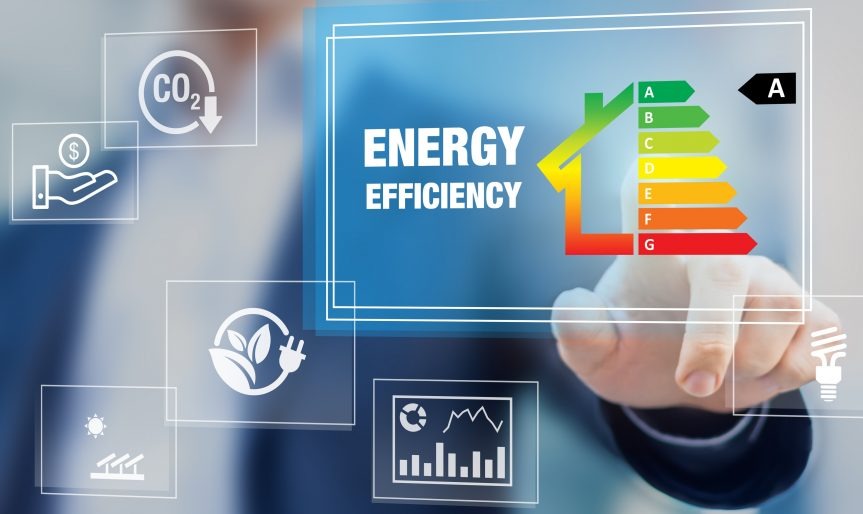In today’s world, where energy costs are skyrocketing, enhancing energy efficiency is more important than ever. For homeowners and businesses alike, optimizing energy use not only leads to significant cost savings but also contributes to environmental sustainability. This blog post explores practical strategies, technologies, and tips for boosting energy efficiency and system performance in your home or office.
By the end, you’ll have a comprehensive understanding of actionable solutions that can enhance your energy efficiency and improve your overall system performance.
Understanding Energy Efficiency
What is Energy Efficiency?
Energy efficiency refers to using less energy to perform the same task or produce the same outcome. For example, using LED bulbs instead of traditional incandescent bulbs reduces electricity consumption while providing the same level of brightness. By maximizing the output from the energy consumed, individuals and businesses can significantly lower their energy bills and minimize their carbon footprint.
Why is Energy Efficiency Important?
Energy efficiency is crucial for several reasons. Firstly, it leads to reduced energy costs, allowing homeowners and businesses to allocate resources elsewhere. Secondly, it diminishes reliance on fossil fuels, reducing greenhouse gas emissions and promoting environmental sustainability. Lastly, energy-efficient practices contribute to energy security by lowering demand and ensuring a stable energy supply for future generations.
Key Statistics
According to the U.S. Department of Energy, implementing energy-efficient practices can reduce energy use in homes by 30%-50%. In commercial buildings, energy efficiency measures can lead to up to 50% energy savings. These numbers illustrate the significant potential for cost savings and environmental impact when adopting energy-efficient solutions.
Identifying Areas for Improvement
Conducting an Energy Audit
The first step to enhancing energy efficiency is to conduct a comprehensive energy audit. This process evaluates how energy is used within a building, identifying areas where improvements can be made. Homeowners can often perform simple audits themselves, but hiring professionals can provide a more detailed assessment.
Common Areas to Assess
During an energy audit, focus on common areas that consume significant energy, such as heating and cooling systems, insulation, windows, and appliances. For instance, if your heating system is outdated, consider consulting a reputable furnace company in Herriman, UT, which can suggest high-efficiency models that can save you money in the long run.
Tracking Energy Consumption
Utilize energy monitoring systems to track your energy consumption over time. These tools provide insights into usage patterns, helping you identify peak times and areas where energy is wasted. Understanding your consumption habits is essential for making informed decisions about energy efficiency improvements.
Practical Solutions for Enhancing Energy Efficiency
Upgrading Heating and Cooling Systems
Heating and cooling systems are among the largest energy consumers in most buildings. Consider upgrading to high-efficiency systems that utilize modern technology to optimize performance. Look for ENERGY STAR-rated equipment, which meets strict energy efficiency guidelines set by the U.S. Environmental Protection Agency.
Improving Insulation
Proper insulation keeps your home warm in winter and cool in summer, reducing the workload on heating and cooling systems. Check areas such as attics, walls, and basements for adequate insulation. Using high-quality insulation materials can significantly enhance energy efficiency, keeping your living space comfortable year-round.
Sealing Air Leaks
Air leaks can drastically reduce energy efficiency by allowing conditioned air to escape. Conduct a thorough inspection of doors, windows, and ductwork to identify and seal any gaps. Weatherstripping and caulking are simple solutions that can significantly impact your energy consumption.
Incorporating Smart Technology
Smart Thermostats
Smart thermostats allow homeowners to manage their heating and cooling systems more efficiently. These devices learn your habits and adjust the temperature accordingly, reducing energy usage when you’re not home. Many smart thermostats can be controlled remotely via smartphone apps, ensuring optimal performance at all times.
Energy Management Systems
For businesses, energy management systems (EMS) provide a comprehensive approach to optimizing energy use. EMS track real-time energy consumption, analyze data, and suggest improvements for efficiency. Implementing such systems can lead to significant energy savings and improved operational performance.
Smart Appliances
Investing in smart appliances also contributes to energy efficiency. These devices are designed to use energy more effectively and often come with features that allow users to monitor and manage their consumption. Many smart appliances can be integrated with home automation systems, providing seamless control over energy use.
The Role of Renewable Energy
Solar Energy
Integrating renewable energy sources, such as solar power, can significantly enhance energy efficiency. By harnessing the sun’s energy, homeowners and businesses can reduce their reliance on traditional energy sources, resulting in lower utility bills and a reduced environmental impact. Government incentives and rebates often make investing in solar panels more affordable.
Wind and Geothermal Options
Consider exploring other renewable energy options, such as wind and geothermal systems. While these solutions may require a higher initial investment, the long-term savings and environmental benefits can be substantial. Evaluating local resources and incentives can help determine the best option for your situation.
Engaging the Community
Educating Others
Sharing knowledge about energy efficiency with your community can amplify your efforts. Organize workshops, webinars, or local initiatives to spread awareness and inspire others to adopt energy-efficient practices. Together, communities can make a more substantial impact on energy consumption and sustainability.
Participating in Local Programs
Many municipalities offer incentives for energy-efficient upgrades. Check with local organizations to see what programs might be available in your area. Participating in these initiatives not only benefits your household but also contributes to broader energy-saving efforts within the community.
Conclusion
Enhancing energy efficiency and system performance is not just an individual endeavor; it is a collective effort that can lead to significant savings and a healthier planet. By following the strategies outlined in this blog, you can make informed decisions that positively impact your energy consumption.
From conducting energy audits to upgrading systems and incorporating renewable energy sources, every step you take contributes to a more sustainable future. Start implementing these solutions today to maximize your energy savings and enjoy a more efficient living or working environment.
For further resources and assistance in enhancing your energy efficiency, consider consulting with professionals in your area or joining local community initiatives. Together, we can power up our savings and ensure a brighter, greener tomorrow.
You May Also Like: News JotechGeeks



